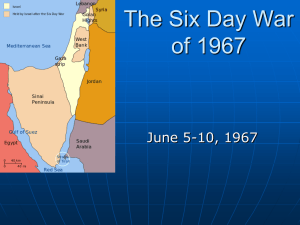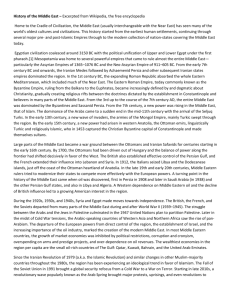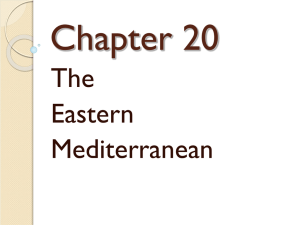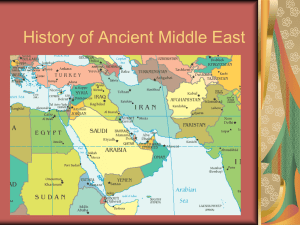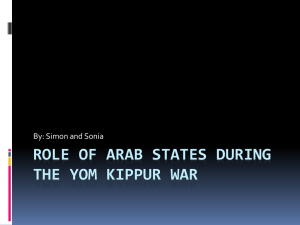France
advertisement
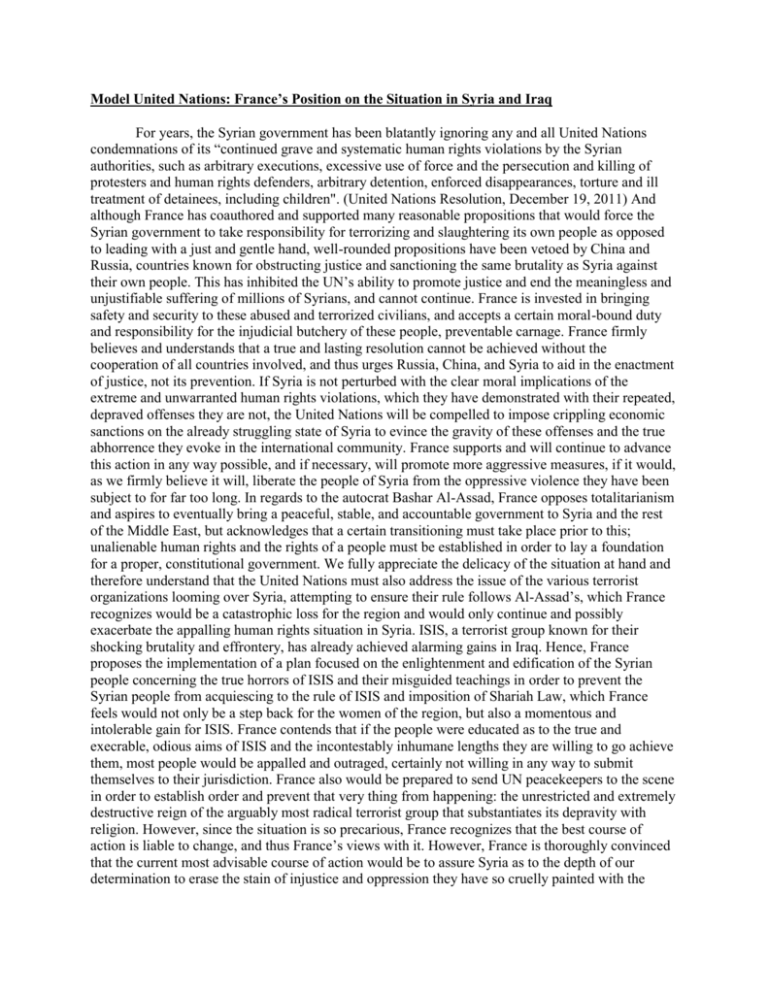
Model United Nations: France’s Position on the Situation in Syria and Iraq For years, the Syrian government has been blatantly ignoring any and all United Nations condemnations of its “continued grave and systematic human rights violations by the Syrian authorities, such as arbitrary executions, excessive use of force and the persecution and killing of protesters and human rights defenders, arbitrary detention, enforced disappearances, torture and ill treatment of detainees, including children". (United Nations Resolution, December 19, 2011) And although France has coauthored and supported many reasonable propositions that would force the Syrian government to take responsibility for terrorizing and slaughtering its own people as opposed to leading with a just and gentle hand, well-rounded propositions have been vetoed by China and Russia, countries known for obstructing justice and sanctioning the same brutality as Syria against their own people. This has inhibited the UN’s ability to promote justice and end the meaningless and unjustifiable suffering of millions of Syrians, and cannot continue. France is invested in bringing safety and security to these abused and terrorized civilians, and accepts a certain moral-bound duty and responsibility for the injudicial butchery of these people, preventable carnage. France firmly believes and understands that a true and lasting resolution cannot be achieved without the cooperation of all countries involved, and thus urges Russia, China, and Syria to aid in the enactment of justice, not its prevention. If Syria is not perturbed with the clear moral implications of the extreme and unwarranted human rights violations, which they have demonstrated with their repeated, depraved offenses they are not, the United Nations will be compelled to impose crippling economic sanctions on the already struggling state of Syria to evince the gravity of these offenses and the true abhorrence they evoke in the international community. France supports and will continue to advance this action in any way possible, and if necessary, will promote more aggressive measures, if it would, as we firmly believe it will, liberate the people of Syria from the oppressive violence they have been subject to for far too long. In regards to the autocrat Bashar Al-Assad, France opposes totalitarianism and aspires to eventually bring a peaceful, stable, and accountable government to Syria and the rest of the Middle East, but acknowledges that a certain transitioning must take place prior to this; unalienable human rights and the rights of a people must be established in order to lay a foundation for a proper, constitutional government. We fully appreciate the delicacy of the situation at hand and therefore understand that the United Nations must also address the issue of the various terrorist organizations looming over Syria, attempting to ensure their rule follows Al-Assad’s, which France recognizes would be a catastrophic loss for the region and would only continue and possibly exacerbate the appalling human rights situation in Syria. ISIS, a terrorist group known for their shocking brutality and effrontery, has already achieved alarming gains in Iraq. Hence, France proposes the implementation of a plan focused on the enlightenment and edification of the Syrian people concerning the true horrors of ISIS and their misguided teachings in order to prevent the Syrian people from acquiescing to the rule of ISIS and imposition of Shariah Law, which France feels would not only be a step back for the women of the region, but also a momentous and intolerable gain for ISIS. France contends that if the people were educated as to the true and execrable, odious aims of ISIS and the incontestably inhumane lengths they are willing to go achieve them, most people would be appalled and outraged, certainly not willing in any way to submit themselves to their jurisdiction. France also would be prepared to send UN peacekeepers to the scene in order to establish order and prevent that very thing from happening: the unrestricted and extremely destructive reign of the arguably most radical terrorist group that substantiates its depravity with religion. However, since the situation is so precarious, France recognizes that the best course of action is liable to change, and thus France’s views with it. However, France is thoroughly convinced that the current most advisable course of action would be to assure Syria as to the depth of our determination to erase the stain of injustice and oppression they have so cruelly painted with the blood of their people, and communicate the stark potential for imminent and devastating economic sanctions if they do not respond as human beings with alacrity. France is confident that the crippling sanctions will bring Al-Assad to quickly reconsider the implications of his actions and take seriously the UN’s call for freedom and justice. Then, in order to cope with the looming and explosive threat of ISIS and other terrorist organizations, France will proposes the commencement of a campaign to inform and edify the Syrians on the subject of Islamic terrorist associations and their injudicious and misplaced base and abject brutality. If necessary, France resolves to equip Syria with sufficient peacemakers to ensure a more stable community. And France will always recall that, as Martin Luther King Junior faithfully proclaimed, “Injustice anywhere is a threat to justice everywhere” as we strive to bring peace to the downtrodden and oppressed. Model United Nations: France’s Position on Israel and Palestine Throughout the history of Israel and Palestine, tensions have been brewing and growing, peppered and fueled by an incessant stream of scuffles and enmity. France acknowledges, as do many, that this is a precarious, potentially explosive relationship, and must be handled with extreme caution. However, France firmly believes in putting out the fire at the source, not just clearing the smoke. Hence, France knows that the only lasting solution for this delicate conflict is the two-state solution. This solution is well-outlined by Francois Delattre, a representative of France to the United Nations; it would entail: “an independent, democratic, contiguous and sovereign Palestinian state, living in peace and security alongside Israel, based on 1967 borders, with Jerusalem as the capital of the two states.” This solution, which would establish an independent and sovereign Palestine, would thus preempt and proscribe Israel from engaging in violence with Palestine; there are many more consequences to be received from the international community if a member of that community is decimated or otherwise harmed due to piddling, injudicious, de minimis reasoning. However, this is not to say that Israel does not experience legitimate security threats from Palestine. And above all, France respects Israel’s sovereignty. Thus, France encourages Israel to engage in prolific, genuine discussion with Palestine about its bona fide security concerns, but understands that Israel is quite capable of determining how it believes the situation would best be handled. In order to express France’s solidarity with Israel, France offers Israel its sincerest support with this troublesome issue, and would even be willing to contribute monetarily or with arms to help keep Israel’s borders and people secure. That is not to say, however, that France condones Israel’s current approach to its security concerns; this summer’s slaughter of more than 2,100 people, including several hundred innocent children, was extreme; though France understands Israeli concerns over Hamas bombings, it cannot accept the 11,000 Palestinian injuries and “unprecedented destruction” as reasonable. (Representative Delattre) The destruction of the Gaza Strip was so extensive members of international community, expressing their solidarity with Palestine, pledged $5.4 billion dollars to aid in the reconstruction. However, France cannot sit and watch this endless, vicious cycle of destruction and reconstruction while the perpetrators of the destruction offer not single dollar to aid in the reconstruction. Also, Israel’s blockade restrictions, which it has maintained since 2007 on the grounds of preventing Iranian rocket shipments, are unacceptable at its current level and cannot continue. Currently, the severe restrictions on necessities such as access to food, water, electricity, gas, construction materials, healthcare, and even edification are devastating Gaza’s people and economy. This cannot be justified. And as border crossings are also seriously limited, the blockade is an issue of freedom as well. As France sees it, Israel is controlling and acutely restricting access to significant religious sites, regulating the inalienable freedom of religion, a freedom and right France believes should be universal. And beyond denying ingress to religious locations, this border blockade has also denied civilians access essential services like healthcare and education. This injustice cannot and should not be condoned. This injustice cannot and should not persist. France surmises that if the two-state solution were enacted, animosity and injustice, causes for violence and conflict, would abate; for if Israel gave Palestine its own state, reducing its borders to those of 1967, allowing Palestinians easier access to the Holy Land, eliminating the humanitarian crisis, it would thus mitigate tensions between Palestinian civilians and Israeli government. Thus, the two-state solution, which France recognizes as an impressive compromise on the part of Israel, would reduce tensions between the two countries, improving relations and tempering ostensible reason or pretext for savagery.

